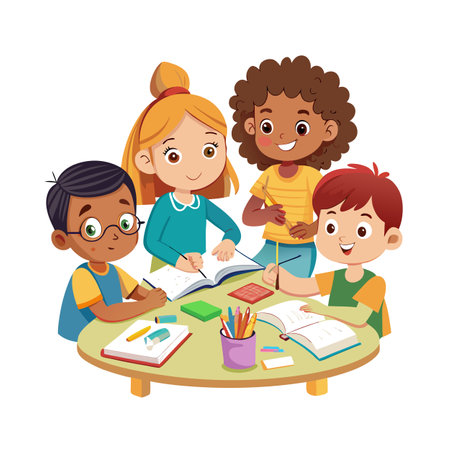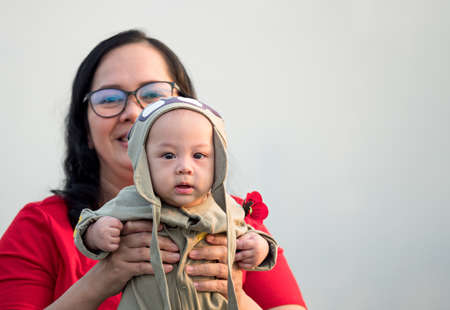Understanding Social Development in Toddlers
Social development is one of the most significant aspects of early childhood, shaping not only how toddlers interact with others but also how they understand themselves and the world around them. At this age, children are naturally curious about their peers and eager to make connections, even if their first attempts at playing together seem more like parallel play than true teamwork. Group activities such as daycare, playgroups, and structured classes offer a safe and supportive environment for these crucial first social experiences. By engaging in group settings, toddlers begin to develop emotional intelligence—learning to recognize their own feelings, empathize with others, and navigate the basics of communication. These early interactions lay the groundwork for lifelong skills like cooperation, sharing, listening, and expressing emotions in healthy ways. For American families, embracing these opportunities means giving children a head start on building relationships and confidence that will serve them well both in school and beyond.
Benefits of Daycare Programs
When it comes to introducing toddlers to group activities, daycare programs stand out for their structured approach and professional support. Unlike informal playdates or casual gatherings, daycare environments are thoughtfully designed to nurture a child’s growth in multiple dimensions. Here’s a closer look at the unique advantages daycare offers:
Structured Routines
Daycare centers operate on consistent daily schedules, which help toddlers feel secure and understand what to expect each day. This sense of routine not only eases transitions between home and daycare but also lays the foundation for time management skills later in life. Children learn to anticipate meal times, nap times, and play sessions, fostering independence and confidence.
Diverse Social Exposure
One of the most valuable aspects of daycare is the diversity of peers and caregivers your child will encounter. Toddlers interact with children from different backgrounds, learning early lessons in empathy, cooperation, and respect for others. They also practice sharing, turn-taking, and communication skills in a supervised environment.
Social Skills Developed in Daycare
| Skill | Description |
|---|---|
| Sharing | Learning to take turns with toys and resources |
| Communication | Expressing needs and listening to others |
| Problem-solving | Working through conflicts with guidance |
| Empathy | Understanding emotions in themselves and others |
Support from Early Childhood Professionals
Daycare staff are trained in child development and early education, providing expert guidance tailored to each stage of your toddler’s growth. These professionals observe individual needs, celebrate milestones, and identify any areas where additional support might be beneficial. Their experience ensures that activities are both fun and developmentally appropriate.
A Parent’s Perspective: Peace of Mind
For many families, knowing their child is cared for by knowledgeable professionals brings tremendous peace of mind. The supportive environment allows parents to focus on work or personal responsibilities while trusting that their toddler is thriving—socially, emotionally, and academically—in a safe space.

3. The Value of Playgroups
Playgroups hold a special place in the journey of introducing toddlers to group activities, especially here in the U.S. where community and connection matter deeply. These informal gatherings create a warm, welcoming space for both children and their parents, making it easier for families to build friendships that last beyond the toddler years.
Fostering a Sense of Community
One of the standout benefits of playgroups is their ability to foster a genuine sense of community. Unlike more structured environments, playgroups are typically relaxed, allowing families from all walks of life to come together and support each other. Whether meeting at a local park, church basement, or community center, these settings help parents and kids feel like they’re part of something bigger than themselves—a village where everyone looks out for each other.
Encouraging Cooperative Play
Toddlers are just starting to learn how to interact with others, and playgroups provide a safe environment for them to practice cooperative play. Instead of playing side by side, children gradually learn to share toys, take turns on the slide, or work together to build a block tower. These small but important moments lay the groundwork for teamwork skills that will serve them well in preschool and beyond.
Navigating Sharing and Problem-Solving
Sharing can be tough for little ones, but regular exposure to group settings like playgroups helps toddlers figure out how to manage big feelings and resolve conflicts. When two kids want the same toy, they have an opportunity—under gentle adult guidance—to talk it out, negotiate, and sometimes even compromise. These early lessons in problem-solving give children confidence and empathy as they grow into more complex social situations later on.
Ultimately, playgroups aren’t just about keeping toddlers busy—they’re about helping kids (and parents!) find their footing in a supportive community while learning vital social skills that last a lifetime.
4. Exploring Enrichment Classes
Enrichment classes—like music, art, and movement—play a powerful role in supporting toddlers’ growth beyond what they experience in daycare or playgroups. These classes are uniquely designed to tap into a child’s natural curiosity, helping them develop cognitive skills, creativity, and physical coordination in ways that feel more like play than structured learning. In the United States, many parents seek out local programs at community centers, libraries, or dedicated children’s studios for these types of activities, knowing their kids will be both challenged and cared for in a safe environment.
The Benefits of Music, Art, and Movement
Participating in enrichment classes exposes toddlers to new sounds, textures, and movements. For example, music classes often involve singing simple songs, clapping hands, or playing instruments like shakers and drums. This not only supports language acquisition but also enhances listening skills and rhythm awareness. Art classes encourage little ones to experiment with colors and materials—think finger painting or clay modeling—which boosts fine motor skills while fostering self-expression. Movement classes such as toddler dance or gymnastics help improve balance, coordination, and muscle strength through guided play.
How Enrichment Classes Boost Development
| Class Type | Cognitive Benefits | Physical Benefits | Social Benefits |
|---|---|---|---|
| Music | Memory, pattern recognition | Hand-eye coordination | Group participation, turn-taking |
| Art | Creativity, problem-solving | Fine motor development | Sharing materials, expressing emotions |
| Movement (Dance/Gymnastics) | Following instructions, focus | Gross motor skills, balance | Teamwork, respecting personal space |
A Safe Space for Social Growth
One of the most important aspects of enrichment classes is the supervised social setting they provide. Trained instructors guide group interactions so that every child learns at their own pace while feeling supported and included. Whether it’s working together on a group mural or waiting their turn during a parachute game, toddlers gain valuable practice communicating their needs and cooperating with peers. For many families across the U.S., these experiences offer peace of mind—they know their children are thriving in environments designed specifically to nurture early childhood development.
5. Tips for a Smooth Transition
Helping your toddler adjust to daycare, playgroups, or classes can feel overwhelming at first, but with some thoughtful steps, the transition can be much easier for both of you. Here are some tried-and-true tips that many American parents have found helpful when introducing their little ones to group settings.
Start Small and Gradual
If possible, ease your child into group activities rather than jumping in full-time right away. Try short visits or attend open houses together so your toddler can get used to the new environment while you’re nearby. Many daycare centers and community classes offer “meet the teacher” days or parent-child sessions—take advantage of these opportunities!
Prepare for Separation
Separation anxiety is common at this age. Practice short separations at home by leaving your child with a trusted family member or friend while you step into another room. When drop-off day arrives, keep goodbyes brief but loving; reassure your child that you’ll be back soon. Consistency helps build trust and security over time.
Create Positive Associations
Talk about the fun things your toddler will do at daycare or in playgroup: “You’ll get to play with new toys,” or “There are songs and story time!” If possible, read picture books about starting school or making friends—stories like “Llama Llama Misses Mama” resonate with many young children in the U.S. You might also let your child pick out a special backpack or comfort item to bring along for an extra boost of confidence.
Stay Connected with Caregivers
Building a relationship with teachers and caregivers benefits everyone. Share any insights about your child’s preferences, routines, or comfort objects to help staff support your toddler’s transition. In American culture, open communication with daycare providers is encouraged—don’t hesitate to ask questions or request updates on how your child is adjusting.
Celebrate Progress, Big and Small
Every milestone matters! Celebrate each successful drop-off or positive report from class with praise and maybe a favorite activity at home. Remember, adjusting to group settings is a process, but with patience and encouragement, most toddlers soon look forward to their new adventures—and parents gain peace of mind knowing their little ones are thriving in a supportive environment.
6. Finding the Right Fit for Your Toddler
Choosing the best group activity for your toddler is a personal decision that depends on your familys needs, your schedule, and—most importantly—your childs unique personality. Every child develops at their own pace and has different comfort levels with social settings. For some families, the structure of a daycare might be perfect, providing consistent routines and plenty of peer interaction. Others might prefer the flexibility of playgroups, which offer less commitment but still allow little ones to socialize in a relaxed environment. Classes such as music, art, or movement can be wonderful for children who thrive on creative expression or need more focused activities.
Consider Your Family’s Schedule
First, think about what works logistically for your family. If you work full-time or have a busy household, daycare could help cover childcare needs while fostering your child’s social growth. Playgroups are often scheduled during mornings or afternoons and may only meet once or twice a week, giving you more control over how much time your toddler spends in group settings.
Know Your Child’s Personality
Some toddlers are outgoing and love jumping into new situations, while others need time to warm up or feel anxious in larger groups. If your child is shy or sensitive, starting with small playgroups or parent-and-child classes can make the transition smoother. For energetic toddlers who crave stimulation, larger daycare settings or active classes like dance or gymnastics might be ideal.
Trust Your Instincts
No one knows your child better than you do. Trust your gut when visiting potential daycares, observing playgroups, or sampling classes. Pay attention to how staff interact with children and whether the environment feels safe and welcoming. Ask other parents about their experiences, and don’t hesitate to try out different options until you find the right fit.
Ultimately, introducing your toddler to group activities should support both their happiness and your family’s peace of mind. The “right” choice is the one that helps your child grow confidently while fitting seamlessly into your everyday life.


